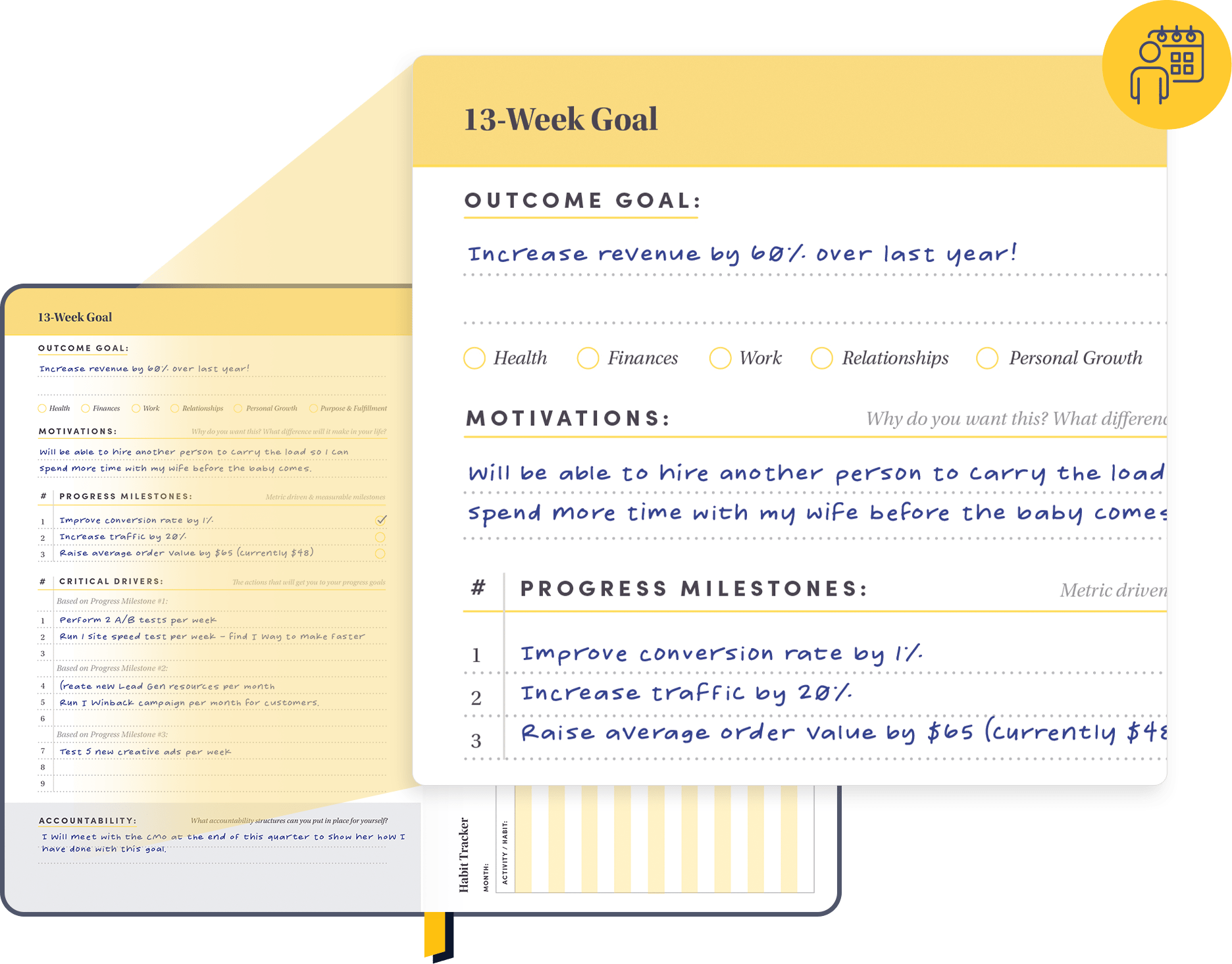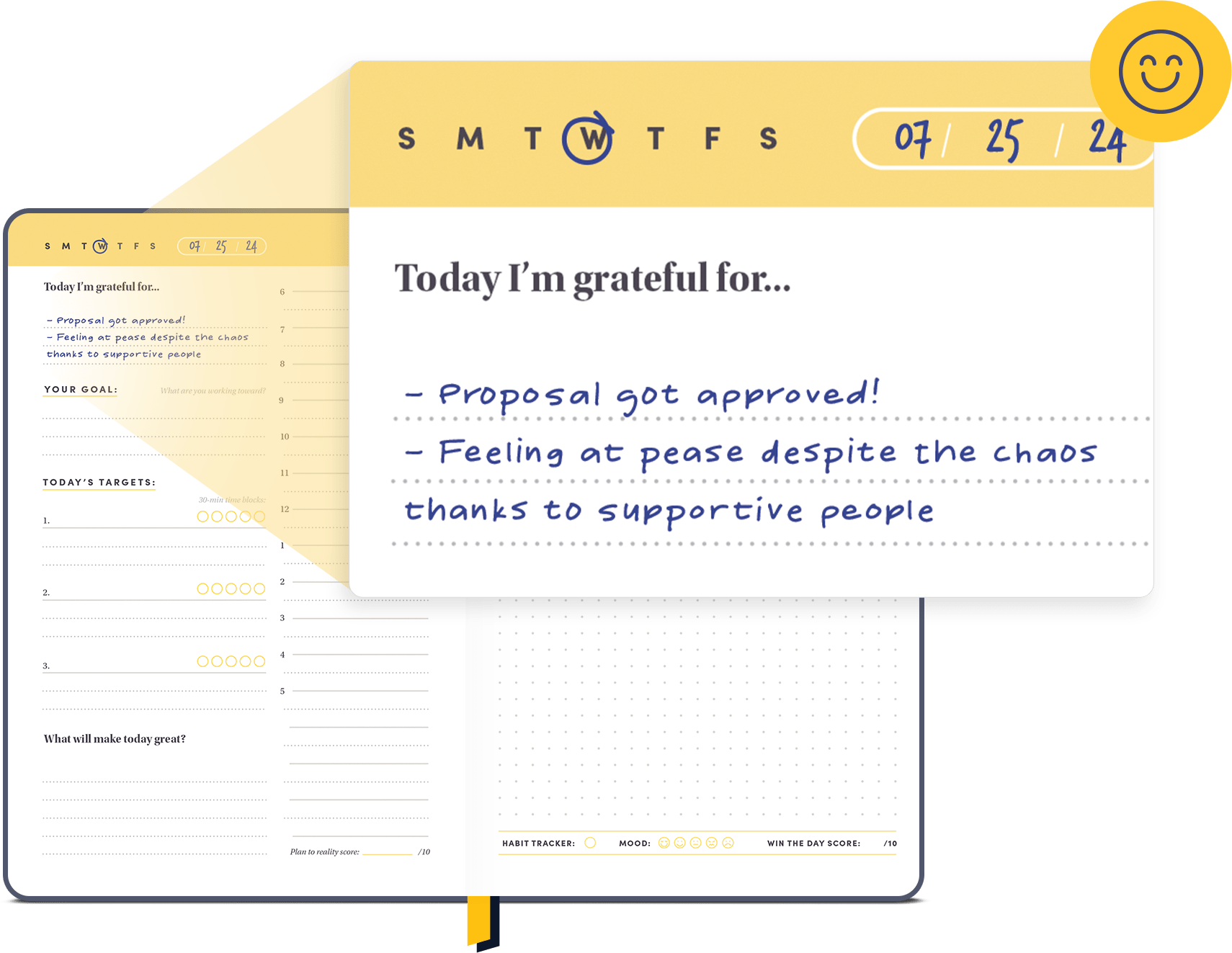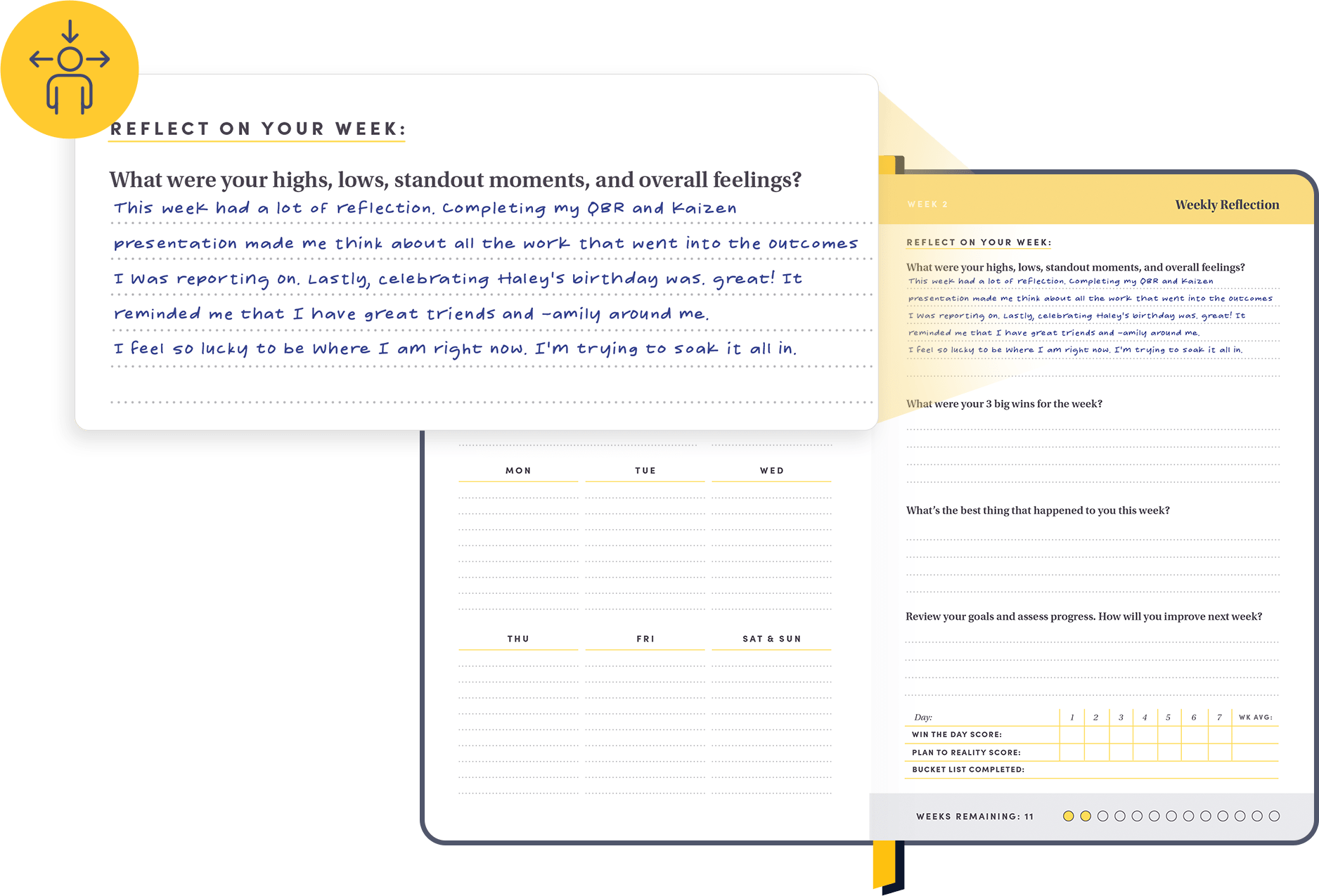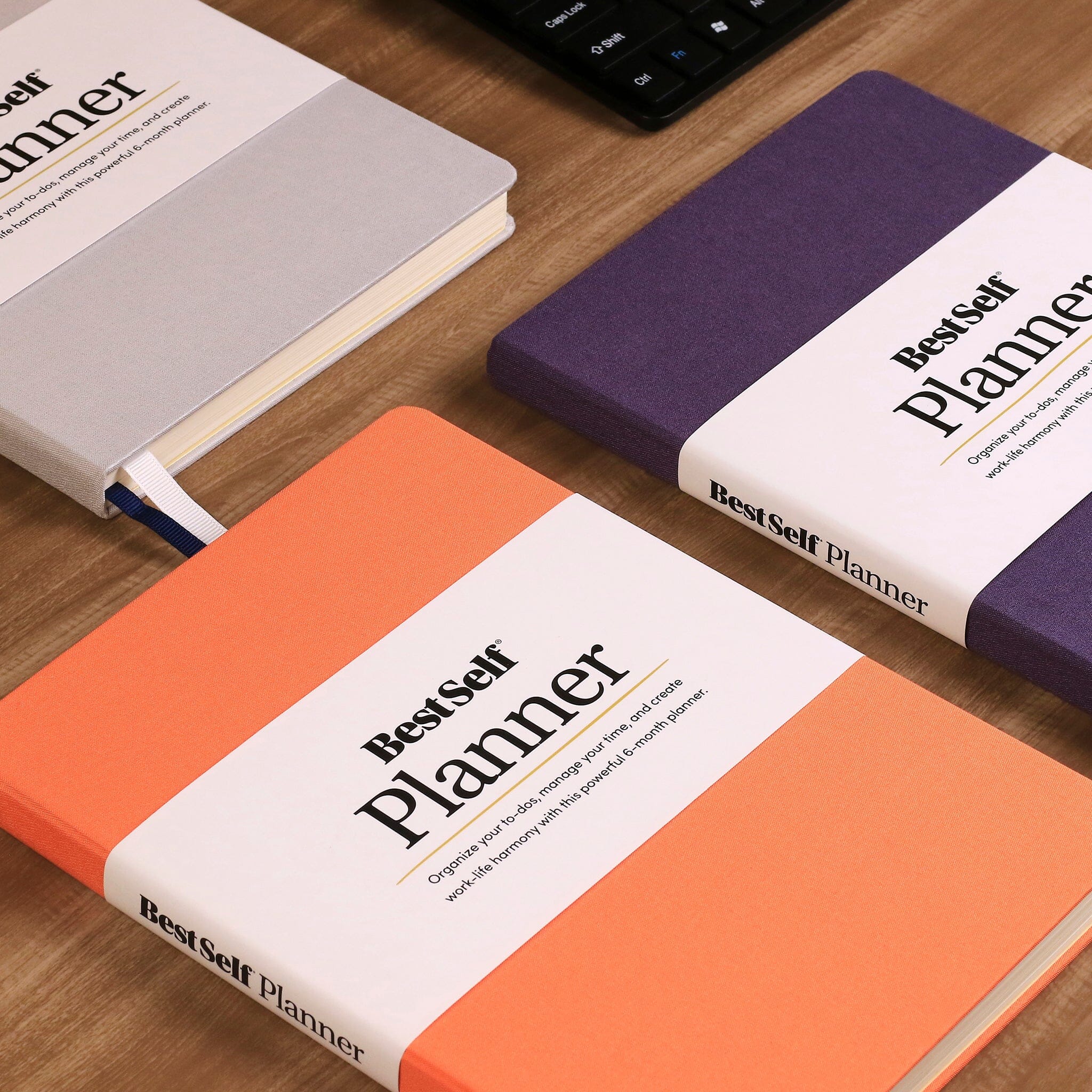
The Science of Success
The Science Behind the Self Journal: Guide to Achieve Productivity
The Self Journal is a tool created to help individuals align their daily tasks with long-term goals, build positive habits, and achieve work-life balance.
By blending proven productivity strategies with intentional goal-setting and reflection, the planner enables users to stay focused, organized, and motivated.
Key Scientific Principles Supporting the Self Journal

THE SCIENCE BEHIND
Goal-Setting and Motivation
Research shows that individuals who write down their goals are 42% more likely to achieve them compared to those who don’t.
Links to scientific studies:
- "The Neuroscience of Goal Setting" by Mark Murphy.
- "Goal Setting and Task Performance" by Edwin Locke and Gary Latham.
- "The Effectiveness of Written Goals on Achievement" byaGail Matthews.
How It Relates
The Self Journal includes dedicated goal-setting sections that guide users in defining SMART (Specific, Measurable, Achievable, Relevant, Time-bound) goals and breaking them into actionable steps.
THE SCIENCE BEHIND
Habit Formation
Time-blocking—allocating specific time slots for tasks—has been shown to improve focus and reduce procrastination by up to 80%.
Links to scientific studies:
How It Relates
The Self Journal’s weekly layouts include time-blocking sections, enabling users to prioritize tasks and optimize their schedules for maximum efficiency.

THE SCIENCE BEHIND
The Impact of Reflection
Self-reflection improves self-awareness, decision-making, and emotional well-being by helping individuals learn from past experiences.
Links to scientific studies:
How It Relates
The Self Journal incorporates reflection prompts at the end of each month, encouraging users to evaluate their progress, celebrate achievements, and identify areas for improvement.

THE SCIENCE BEHIND
Time Management and Productivity
Studies reveal that habits are formed through repetition and tracking, with a minimum of 21 days needed to establish a new habit.
Links to scientific studies:
How It Relates
The Self Journal’s habit tracker helps users build and maintain positive habits by providing a visual representation of progress and consistency.

THE SCIENCE BEHIND
Mindfulness and Self-Reflection
Maintaining work-life balance is associated with lower stress levels, improved mental health, and higher overall life satisfaction.
Links to scientific studies:
- "Work-Life Balance and Mental Health" by Tammy Allen.
- "The Effects of Work-Life Integration on Well-being" by Ellen Ernst Kossek.
- "Balancing Work and Personal Life: Strategies for Success" by Jeffrey H. Greenhaus.
How It Relates
The Self Journal encourages users to prioritize self-care, relationships, and leisure activities alongside professional tasks, fostering a holistic approach to productivity.



















